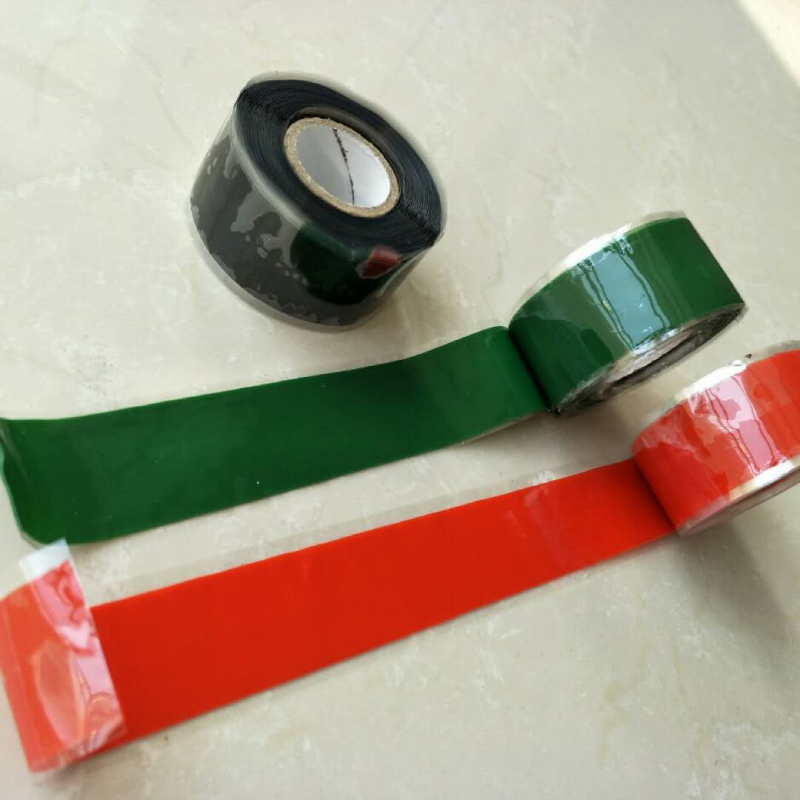The Benefits of Silicone Rubber Electrical Tape
Silicone rubber electrical tape has emerged as a preferred choice among electricians, DIY enthusiasts, and industrial professionals for various applications. Renowned for its superior electrical insulation properties and resilience, this specialized tape has become indispensable in numerous settings. In this article, we delve into the unique features, advantages, and common uses of silicone rubber electrical tape.
Exceptional Electrical Insulation
One of the most notable benefits of silicone rubber electrical tape is its exceptional electrical insulation capabilities. It withstands high voltages, making it suitable for securing and insulating wires in electrical installations. Unlike traditional vinyl or cloth tapes, silicone rubber tape exhibits excellent resistance to electrical currents, reducing the risk of short circuits and ensuring safe operation, particularly in high-performance environments.
Temperature Resistance
Silicone rubber can withstand extreme temperatures, ranging from -60°F to 500°F (-50°C to 260°C). This makes silicone rubber electrical tape ideal for both high-temperature environments, such as automotive applications and industrial machinery, and low-temperature scenarios, such as outdoor electrical installations. The ability to maintain its integrity under severe conditions ensures reliability, contributing to the longevity of the taped connections and components.
Chemical and Environmental Resistance
Moreover, silicone rubber electrical tape boasts impressive resistance to various chemicals, water, and UV exposure. This feature makes it suitable for applications in harsh environments where exposure to oils, solvents, or moisture is prevalent. The tape does not become brittle or lose its adhesive properties over time, ensuring that it maintains a tight seal even in challenging situations.
silicone rubber electrical tape

Easy Application
Another remarkable aspect of silicone rubber electrical tape is its ease of application. The tape is self-fusing, allowing for seamless bonding without the need for adhesives. This self-fusing characteristic means that it wraps around objects and bonds to itself, forming a strong and protective seal that is both durable and reliable. Additionally, it can be applied in layers to achieve the desired thickness and insulation level, providing flexibility for various projects.
Versatility and Common Uses
Silicone rubber electrical tape is versatile and can be used in multiple applications. It is widely employed in automotive wiring, electrical repairs, appliance manufacturing, and even aerospace. Its adaptability extends to use in high-voltage splices, connectors, and protective wraps for sensitive electronic components. The tape is also useful for insulating toolbox contents or creating insulated connections in DIY electrical projects.
Conclusion
In conclusion, silicone rubber electrical tape is a vital tool for anyone involved in electrical work, whether it be in professional settings or personal projects. Its key attributes—including exceptional electrical insulation, high-temperature resistance, chemical resilience, and ease of application—make it the go-to choice for a variety of tasks. By investing in silicone rubber electrical tape, individuals and businesses can enhance their electrical safety and reliability, ensuring that their installations and repairs stand the test of time.
As the world continues to evolve technologically, the demand for reliable materials like silicone rubber electrical tape will only grow. Understanding its benefits and applications can equip users with the knowledge needed to make an informed decision when it comes to electrical insulation and protection. Whether you're a professional electrician or a hobbyist, integrating silicone rubber electrical tape into your toolkit can significantly elevate the quality and safety of your work.
-
XIANGFAN Rubber Tape-Ultimate Solutions for All Your Insulation NeedsNewsJun.24,2025
-
XIANGFAN Rubber Tape-Protection for Industrial and Residential ApplicationsNewsJun.24,2025
-
XIANGFAN Rubber Tape: Superior Safety and Sealing for Demanding EnvironmentsNewsJun.24,2025
-
XIANGFAN Rubber Tape: Reliable Solutions for Every Electrical ChallengeNewsJun.24,2025
-
XIANGFAN Electrical & Industrial Tape: Powering Reliability Across IndustriesNewsJun.24,2025
-
XIANGFAN Electrical & Industrial Tape: Excellence in Every ApplicationNewsJun.24,2025
